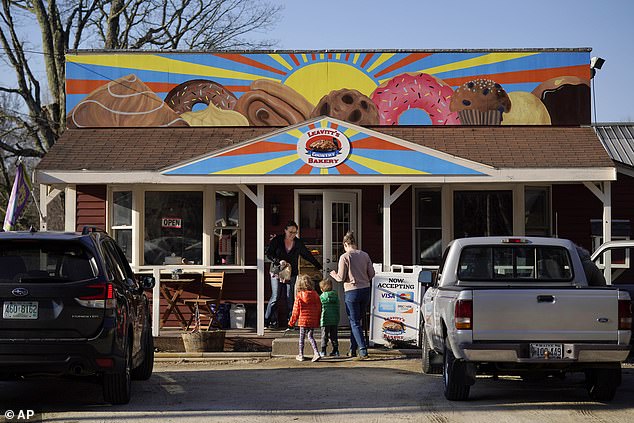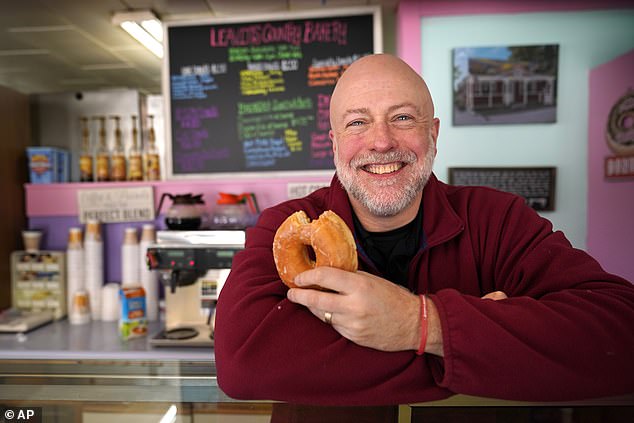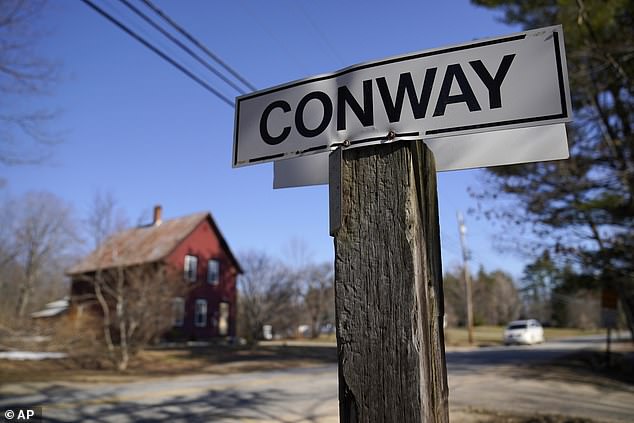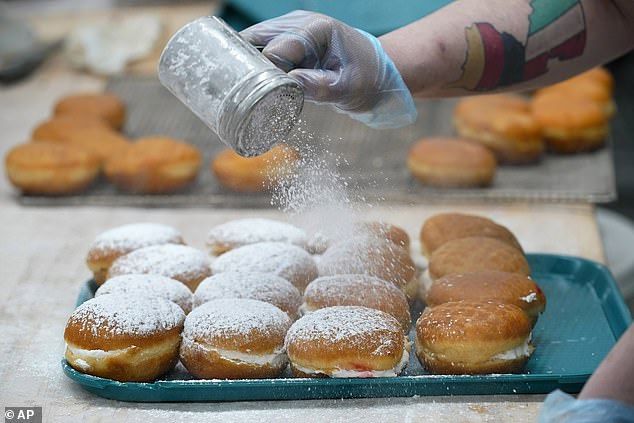New Hampshire Bakery Triumphs in Zany Donut Dispute With Local Authorities
-
EXPLORE FURTHER: Business proprietors with inauspiciously titled enterprises encounter repercussions
A bakery proprietor from New Hampshire achieved a legal win against the local authorities who attempted to dismantle their donut artwork.
Leavitt’s Country Bakery, situated in the center of the charming New England town of Conway, was instructed to remove an artwork mural from its storefront due to non-compliance with local zoning regulations.
The artwork atop the community building renowned for its handcrafted doughnuts was created by nearby high school students. It depicts New Hampshire’s iconic White Mountains in a playful representation using baked goods imagery.
The local officials in Conway, nevertheless, were not amused.
Last year, authorities instructed Sean Young, who owns Leavitt’s Bakery, to remove the artwork because it supposedly violated the town’s zoning regulations. The mural was reportedly four times bigger than what is allowed for commercial signage.
Young contended that the mural constituted art rather than commercial advertising, and thus filed a First Amendment lawsuit against Conway, demanding $1 in damages.
Now U.S. District Judge Joseph Laplante has ruled that the donut artwork can remain.
‘Conway’s application of its sign code, and specifically its enforcement of the sign code to the Leavitt’s sign in the particular manner it employed in this case, does not withstand any level of constitutional scrutiny,’ the Judge wrote in his ruling.

The decision follows a contentious bench trial in February during which both the bakery and the town submitted their evidence and witness testimonies.
Young told
The Wall Street Journal
he expressed his excitement over his win.
“I believe our mural beautifully captures all the elements that make living in the Mount Washington Valley so fantastic,” he said to the magazine.
Robert Frommer, who formerly represented Young, stated, “Just because you own a doughnut shop doesn’t mean you forfeit your freedom of speech.”
‘Whether you create pastry mountains or depict actual mountains, that’s the artistic decision made by the storeowner, rather than the government.’
Leavitt’s Bakery has been running since the 1970s and is housed in a charming 1,300-square-foot red cabin.
The case garnered significant media coverage because New Hampshire, known for its motto ‘Live Free or Die,’ tends towards a more libertarian approach rather than an interventionist style of local governance.
For instance, the government does not impose any sales tax and adopts a hands-off attitude towards road safety regulations—there are no mandates for adults to use seatbelts when riding in cars or helmets when riding motorcycles.



During the pandemic, Young acquired Leavitt’s Bakery and soon after decided to ask art students from the nearby high school to create a mural for it.
A year or so after purchasing it, a buddy of mine, acquainted with the nearby high school’s art instructor, mentioned to me, “They’re searching for a spot to undertake an art project,” as recounted by Young to the Journal earlier.
The students eagerly seized the chance and felt a sense of pride in what they produced.
Throughout the legal battle, people within this close-knit neighborhood found themselves at odds regarding which side had justice on their side.
Lisa Parent, a fourth-generation Conway resident, went to zoning board meetings to back Young’s appeal.
“I am well acquainted with your signage regulations, which seem quite inconsistent,” she stated during an analogous gathering with the board last year.